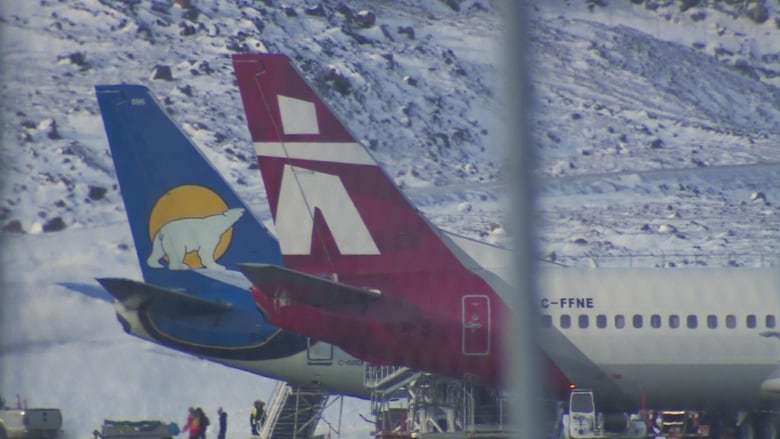Ottawa approves merger between Canadian North and First Air

The Canadian government has approved the merger between northern airlines First Air and Canadian North.
In a press release Wednesday afternoon, the government said the merger is subject to several terms and conditions.
Those include no price increases to both passenger travel and cargo delivery, beyond those related to operating costs, and no reductions to the weekly schedule options on all routes of the airlines’ combined network.
The government also said the new merged airline will be subject to several transparency and accountability measures, including providing quarterly financial updates and yearly financial statements to the minister of Transport Canada.
“We carefully examined the public interest, financial and competition aspects of the proposed merger. A strong, financially stable northern air carrier, taking advantage of operating and network efficiencies of a merger, will best serve the North by leading to greater reliability of service as well as environmental sustainability,” Transport Minister Marc Garneau said in the press release.
“The strict terms and conditions will keep costs low and ensure northern and remote communities have the access they deserve, while at the same time protecting northern jobs.”
A spokesperson for Garneau’s office said he was travelling back from the Magdalen Islands Wednesday afternoon and was unavailable for an interview.
As previously announced, the new airline will operate under the name “Canadian North” while maintaining the First Air livery. The headquarters will be in Ottawa.
In a statement, Makivik Corporation — which represents Inuit of Northern Quebec and owns First Air — president Charlie Watt said the announcement was “good news,” while Inuvialuit Regional Corporation — which represents Inuit of Canada’s western Arctic and owns Canadian North — CEO Duane Smith said the merger follows through on a commitment to “act in the best interest of all Northerners.”
Beneficiary fares locked in for 7 years after merger
According to the government’s conditions of the merger, beneficiary fares — the Ilak fare and Pivut fare — will not increase for seven years after the deal is finalized. The free baggage allocation for those fares is also safe.
The conditions also stipulate passenger fares shall not increase for seven years, on average, by more than any increases in operating costs. The same goes for cargo fares, while the new airline will need to “apply minimum standards of service” that will include a set list of what cargo will be priority, and a maximum amount of time it will take to reach its final destination.
The new airline will also need to create an advisory board, with representation from shareholders in Nunavut and the N.W.T., which will report to Canada’s Transport Minister on any issues regarding compliance with the conditions, or any “anticompetitive behaviour by the new airline”.
The conditions also stipulate the new airline will establish an Inuit training and development program, aimed at increasing Inuit representation within the new airline.
Merger attempt will be different this time
The airlines pitched the merger last year, saying it was necessary to ensure sustainability, especially since both airlines double up passenger and cargo services on many commonly-shared routes.
The two airlines tried, and ultimately failed, to merge in 2014. But when the latest merger was announced last year, IRC’s Chief Financial Officer Mark Fleming said the main difference this time around was the leadership on both sides, namely with Watt and Smith at the helm.
“[They] understand the value of having a shared approach, consensus decision-making, and being able to use both Inuit organizations to bring better service to the North,” he told CBC News in July 2018.
Back in February, the Competition Bureau warned that merger between the two largest airlines operating passenger service in Nunavut would likely result in higher prices and fewer flights.
Makivik and the IRC fired back, saying the Competition Bureau has a “superficial understanding” of how business worked in the North.
Related stories from around the North:
Canada: Residents concerned by Northern Canadian airline merger, CBC News
Finland: EU Boeing aircraft ban affects Norwegian Airlines flights in Helsinki, Yle News
Iceland: Canadian couple among stranded passengers after Icelandic budget airline WOW Air folds, CBC News
Norway: Longer runway for bigger planes in Kirkenes, northern Norway, The Independent Barents Observer
Russia: No more direct flights between northwest Russia’s two largest cities, The Independent Barents Observer
Sweden: Scandinavian Airlines and pilots union reach agreement to end strike, Radio Sweden
United States: Alaska Airlines adds restrictions on emotional support animals, Alaska Public Media



